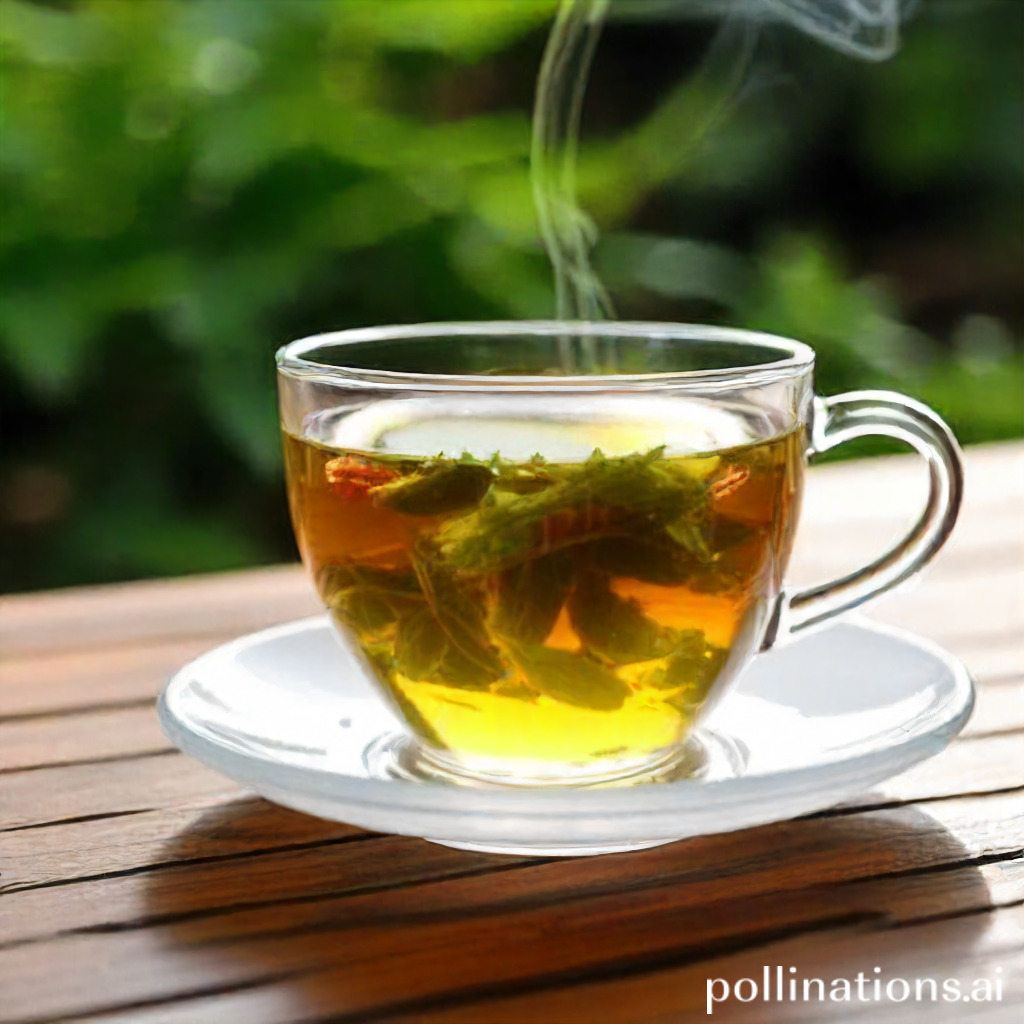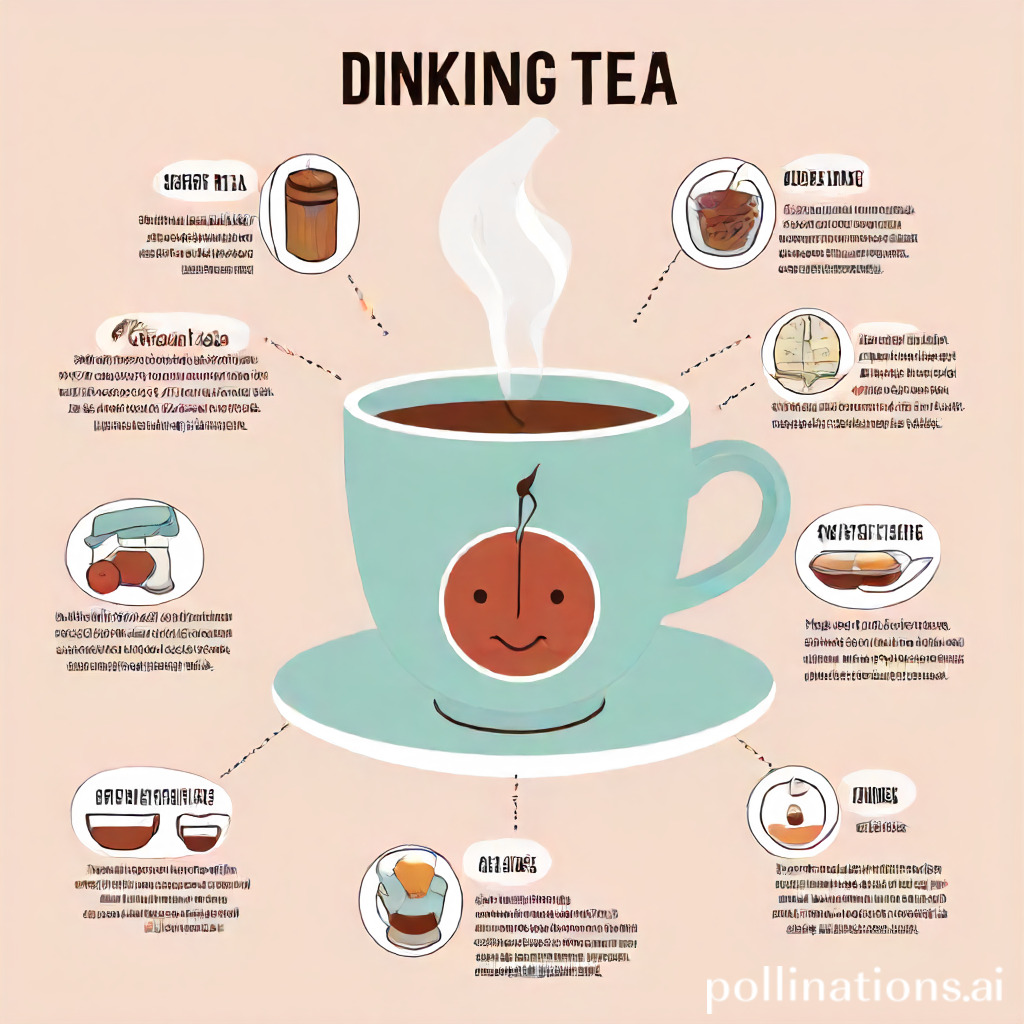Can you drink tea during water fasting? This question often leads to a heated debate in the fasting and wellness community. The rules and guidelines for water fasting are important as more people use it to rejuvenate their bodies and cleanse their systems.
In this article, we will address the age-old question and scrutinize the potential benefits and drawbacks of embedding tea into your water fasting routine. So, grab a cup of your favorite brew and join us as we uncover the truth behind tea and water fasting.
How to Prepare for a Water Fast
1. Gradually reducing your food intake
Before embarking on a water fast, it’s essential to prepare your body gradually. Start by reducing your food intake over a few days. This helps your body transition into a fasting state without experiencing severe hunger pangs or discomfort. Begin by coalescing lighter, easily digestible meals and gradually decreasing portion sizes. Focus on consuming nutrient-rich foods such as leafy greens, fresh fruits, and whole grains to ensure your body receives essential vitamins and minerals.
2. Staying hydrated before starting the fast
Hydration is crucial during any fasting regimen, even when water fasting. Adequate hydration helps prevent dehydration and supports your body throughout the fasting process. In the days leading up to your water fast, ensure you’re well-hydrated. Consume plenty of water and herbal teas to keep your body in a state of optimal hydration. Avoid caffeine and sugary beverages, as they can lead to increased thirst and disrupt the fasting process.
3. Clearing your schedule and creating a supportive environment
Planning is key to a successful water fast. Clear your schedule during the fasting period to reduce stress and allow your body to focus on the cleansing process. Create a peaceful and supportive environment at home. This includes eliminating temptations like processed foods and snacks from your surroundings. Surround yourself with positive influences and support from friends and family who understand your fasting goals.

Navigating the Water Fasting Process
1. Dealing with hunger and cravings during the fast
Managing hunger and cravings during a water fast can be challenging. To curb hunger, consider drinking herbal teas or infused water to ease the discomfort. The warmth and subtle flavors of certain teas might help suppress appetite. Additionally, keeping yourself occupied with light activities, meditation, or engaging in hobbies can divert your attention away from food cravings.
2. Managing potential side effects and detox symptoms
During a water fast, some individuals may experience side effects such as dizziness, fatigue, or headaches. To mitigate these, prioritize rest and relaxation. It’s crucial to listen to your body and break the fast if symptoms persist or worsen. Integrating electrolytes or consuming small amounts of green tea can be beneficial to alleviate certain symptoms and maintain hydration levels.
3. Seeking support and accountability during the fast
Embarking on a water fast can be emotionally and physically demanding. Engaging with a supportive community, seeking guidance from a healthcare professional, or partnering with a fasting buddy can offer accountability and encouragement. This shared experience can provide motivation and insight, ensuring a smoother and more successful fasting journey.
The Role of Tea During Water Fasting
When engaging in a water fasting regimen, it is common for individuals to wonder about the permissibility of consuming tea. This section aims to provide insight into the role that tea can play during water fasting, pioneering various tea options that support the fasting process and appraising the potential impact of different teas on fasting.
1. Can you drink tea in the course of water fasting?
One of the most frequently asked questions regarding water fasting is whether tea consumption is allowed. The answer to this question largely depends on the type of tea being consumed. At the same time pure, unsweetened herbal teas are generally considered acceptable during water fasting, teas containing additives, such as sugar or milk, should be avoided.
2. Tea options that support the fasting process
For individuals looking to augment their water fasting experience, certain teas can be beneficial. Green tea, for example, is rich in antioxidants and can aid in detoxification. Additionally, chamomile tea promotes relaxation and can help alleviate any potential fasting-related discomfort. Imperative to select teas that do not interfere with the fasting state and provide health benefits.
3. Grasping the potential impact of different teas on fasting
Whilst some teas provide benefits during water fasting, others may have potential impacts that should be considered. For instance, teas with caffeine, such as black tea or certain herbal teas, may have stimulant effects that can disrupt sleep patterns or increase heart rate. It is crucial to be aware of these potential effects and choose teas accordingly.

Harnessing the Benefits of Water Fasting
Water fasting has become a popular means of detoxifying the body and promoting overall wellness. To ensure that you reap the maximum benefits from your water fasting experience, it is essential to employ certain strategies and techniques. In this section, we will probe some ways to harness the benefits of water fasting.
1. Incorporate light exercise and movement during the fast
In the course of essential to rest and conserve energy during a water fast, engaging in light exercise and movement can be beneficial. Gentle activities such as yoga, stretching, or walking can help improve blood circulation, maintain muscle tone, and amplify overall well-being. Pivotal to listen to your body and avoid strenuous exercises that may strain your energy levels.
2. Practice mindfulness and stress-reducing techniques
Water fasting not only detoxifies the body but also provides an opportunity to cleanse the mind. Practicing mindfulness techniques such as meditation, deep breathing, or journaling can help reduce stress and promote mental clarity. By focusing on the present moment and letting go of any negative thoughts or emotions, you can amplify the overall effectiveness of your water fast.
3. Monitor your progress and adjust your approach as needed
Every individual responds differently to water fasting, and it is essential to monitor your progress throughout the process. Keep track of any physical or emotional changes you experience and make adjustments to your approach as necessary. This may involve consulting with a healthcare professional or fasting expert to ensure that you are on the right track and reaping the maximum benefits from your water fasting journey.
| Benefit | Description |
|---|---|
| Detoxification | Water fasting helps eliminate toxins from the body, promoting overall health and wellness. |
| Mental Clarity | Mindfulness practices during water fasting can improve focus and mental clarity. |
| Improved Digestion | A break from solid food allows the digestive system to rest and reset, improving overall digestion. |

Breaking the Fast: Transitioning Back to Solid Foods
Breaking a fast requires careful planning to ensure a smooth transition back to regular eating habits. This section will provide guidance on how to reintroduce food after a fast, focusing on nutritious and easily digestible options. It is vital to listen to your body and be cognizant of any reactions during this process.
1. Gradually Reintroducing Food After the Fast
After a period of fasting, it is imperative to reintroduce food gradually to allow your body to acclimate. Begin with small portions and gradually increase the amount over a few days. This approach helps prevent digestive distress and allows your body to readjust to regular eating.
2. Choosing Nutritious and Easily Digestible Foods
When breaking a fast, it is essential to choose foods that are both nutritious and easy to digest. Opt for foods that are rich in vitamins, minerals, and antioxidants. Some excellent options include fruits, vegetables, lean proteins, and whole grains. These foods provide essential nutrients at the same time being gentle on the digestive system.
2.1 Including Fruits and Vegetables
Fruits and vegetables are packed with vitamins, minerals, and fiber, making them ideal choices when breaking a fast. Incorporate a variety of colorful fruits and vegetables into your diet to ensure you receive a broad range of nutrients.
2.2 Lean Proteins
Include lean proteins such as chicken, fish, tofu, or beans in your meals after fasting. These protein sources provide essential amino acids and offer a satiating effect, helping you feel satisfied for longer.
2.3 Whole Grains
Whole grains like quinoa, brown rice, and oats are excellent sources of fiber and nutrients. They provide sustained energy and promote healthy digestion, making them a valuable addition to your post-fast diet.
3. Listening to Your Body and Being Cognizant of Any Reactions
When reintroducing food after a fast, pay close attention to how your body reacts. Some individuals may experience mild digestive discomfort or food sensitivities. If you notice any adverse reactions, consider eliminating the problematic food and consult a healthcare professional if necessary.
To assist you further in cognizing the process of breaking a fast, below is an informative table summarizing the key points:
| Key Points |
|---|
| Gradually reintroduce food: Start with small portions and increase slowly over a few days. |
| Choose nutritious foods: Opt for fruits, vegetables, lean proteins, and whole grains. |
| Be cognizant of reactions: Pay attention to how your body responds and eliminate any problematic foods. |
Faq about Water Fasting
FAQ 1: Can I add lemon or other flavorings to my water during the fast?
No, it is recommended to only consume plain water during a water fast. Adding lemon or other flavorings can disrupt the fasting process and may not provide the full benefits of a water fast.
FAQ 2: What if I feel weak or dizzy during the fast?
If you feel weak or dizzy during a water fast, fundamental to listen to your body and break the fast if necessary. Fasting should not cause severe discomfort or negatively impact your overall health. Consult a healthcare professional if you experience persistent weakness or dizziness.
FAQ 3: How long should a water fast typically last?
The duration of a water fast can vary depending on individual circumstances and goals. It is recommended to start with shorter fasts, such as 24-48 hours, and gradually increase the duration if desired. Extended fasts should be done under medical supervision.
FAQ 4: Can I continue my regular medication whilst water fasting?
It is crucial to consult with your healthcare provider before starting a water fast if you are taking any medications. Some medications may require food intake, and your healthcare provider can guide you on the best approach during fasting.
FAQ 5: Is it normal to experience headaches during a water fast?
Headaches can be a common side effect of water fasting, especially during the initial stages. This is often due to the body adjusting to the changes in nutrient intake. Staying hydrated and getting adequate rest can help alleviate headaches. If headaches persist or become severe, it is advised to seek medical advice.
Read More:
1. 6 Proven Benefits of Cold Brew Green Tea
2. 6 Ways to Make Guava White Tea Lemonade for a Refreshing Summer Drink

